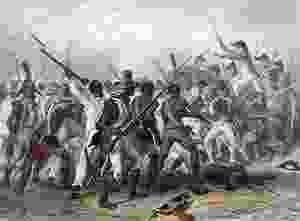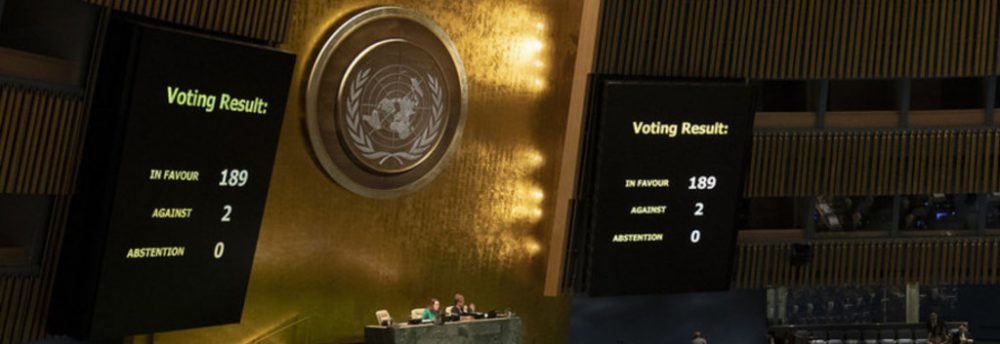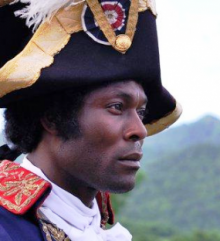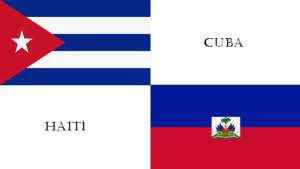Source: Bitlove.com
When Great Britain’s leaders convened in court to end the slave “trade” in 1807, they began a journey toward the 1833 abolition, (leaving Africans tied to a 4 year unpaid internship and a long way from civil rights). Many a white abolitionist or philosopher made profound statements about the “rights of man” that were heralded as the “moral capital” of the British. Backs were patted that had never felt the weight of a whip.
This capital would later be leveraged to encourage Portugal, Spain, and France to follow suit, and end their own Transatlantic slave trade. The story of African emancipation hardly involves Africans at all. History books bloated with the importance of white men still leave many black people wincing. But what had changed for these white men? Why did centuries of slavery suddenly go out of fashion followed by little improvement to the rights of African people?
Well, most of the story is missing. Haiti had just been born in a ball of fire and blood. When the dust settled, the rewards of slavery were scarred by resistance and indisputable black strength. The British were not proactive, but reactive.

Saint-Domingue (Haiti) was the jewel of the French crown, the heartland of colonial sugar production. To run this operation Africans were imported in their millions. Over ¼ of the transatlantic slave trade was destined for the Caribbean Islands. Many of the people enslaved during this period were captured as adults so their culture, experience and the spirit of freedom travelled with them.
French rule in Saint-Domingue was therefore despicable. Any small resistance was punished with enough brutality to inspire bone shuddering terror. Long, slow, public executions were carried out often.
Africans would find relief by sneaking out into the forests at night to hold ritual gatherings. Around the circle stood diverse people from different regions, cultures and languages, all united. There, the people who had been the most deeply oppressed found a source of inner strength.
On one August night in 1791 the sugar fields were torched, mansions were stormed upon and 14 long years of slave led resistance began.
The French sent their armies and they were defeated. Hopeful to expand their territories the Spanish and British sent their armies too. They were all defeated repetitively. The new emperor Napoleon then devised a false partnership to deceive the rebels and captured their most honourable leader, Touissant L’ouverture. The revolution continued without him.
Then, in 1801, Napoleon Bonaparte set his sights on two conquests: Saint-Dominique and Spanish controlled Louisiana. Napoleon sent 50,000 troops to the Caribbean island and planned to send a smaller army of 20,000 to Louisiana (which was more than the entire American army at that time).
With Touissant L’ouverture locked away in France, Napoleon was convinced he would win, boldly stating “No more gilded Africans,” “enslave them all”. In two years the gilded Africans had won and (near to bankruptcy), Napoleon begrudgingly diverted the further 20,000 troops to Saint-Domingue where the slave rebellion defeated him yet again.
The Louisiana deal, a proud moment in Jefferson’s formation of the United States (and the claim to ¼ of modern USA) would not have happened if it weren’t for the African slave armies of Saint-Domingue stopping Napoleon’s attack. The US owes its own liberation to enslaved Africans. If only that gratitude could have been felt, American history might look very different.
In 1804 Saint-Domingue declared itself a sovereign state and the revolution ended. The ‘slave rebellion’ named itself Haiti. This was a word used to honour the native people. Oral histories suggested that this is what the Taino people had named the land before the Spanish arrived and slaughtered them.
So with a new name honouring a time before conquest and a noble constitution, Haiti broke the paradigm of African subordination. “There cannot exist slaves on this territory, servitude is therein forever abolished. All men are born, live and die free.”
Slave owners around the world were struck by fear for their lives. Refugees from the many years of fighting had dispersed around the Americas and took their stories with them. New slave insurrections started with increased ferocity and 3 years later Britain stopped the imports of slaves but not the practice of slavery. Perhaps this was in the hope that stories of revolution wouldn’t travel too.
In conclusion, it’s clear; people who shape history are not the ones who sit and pontificate in prestigious rooms. People shape history by turning their face toward the impossible when they decide that what’s possible is no longer good enough. We can all do this, every single day, and we must do it in our own lives, for our own world.
Whatever racial heritage we have, we must honour Haiti for redefining what’s possible and demonstrating the ferocious power of self-liberation. French troops kissed the soil of their revolutionary homeland goodbye just to arrive in a place where black people were singing the same songs of freedom. The many hypocrisies of Europeans sat with those poor individuals as they slowly succumbed to malaria.
What do you stand for? What will you stand up for? And how can you channel great courage in the name of freedom to improve your life? The deception runs deep but your power runs deeper.



 Haiti has been struggling for more than two centuries to establish
Haiti has been struggling for more than two centuries to establish
